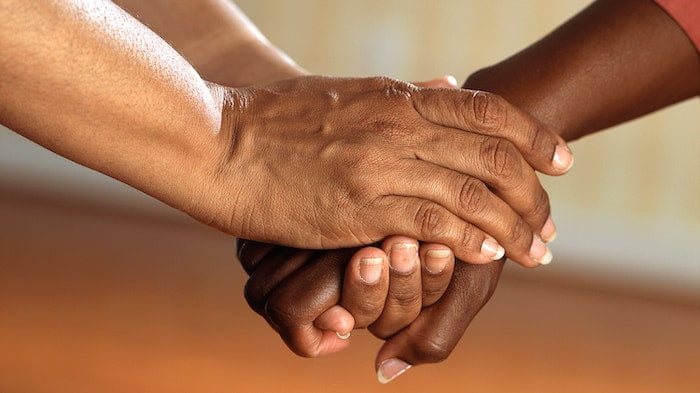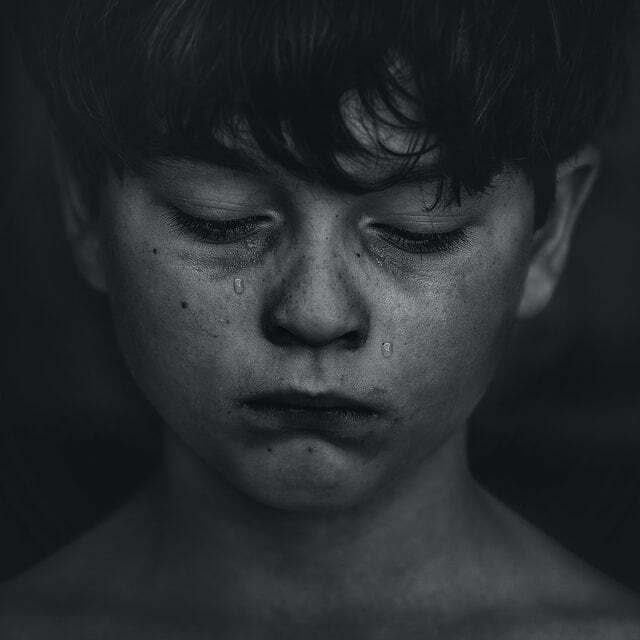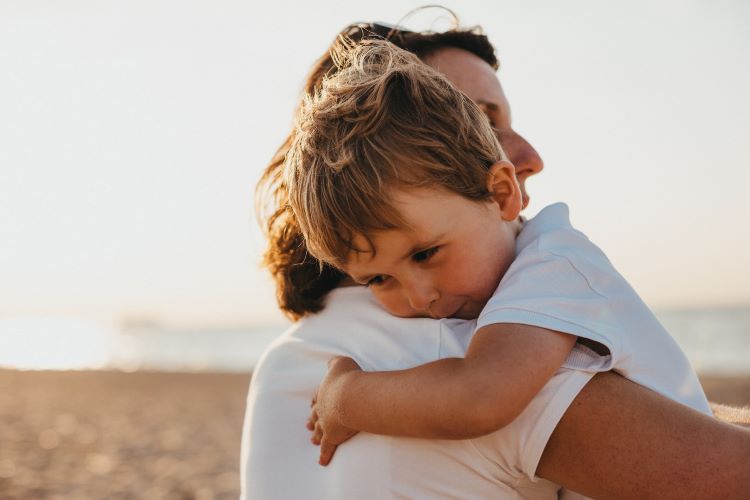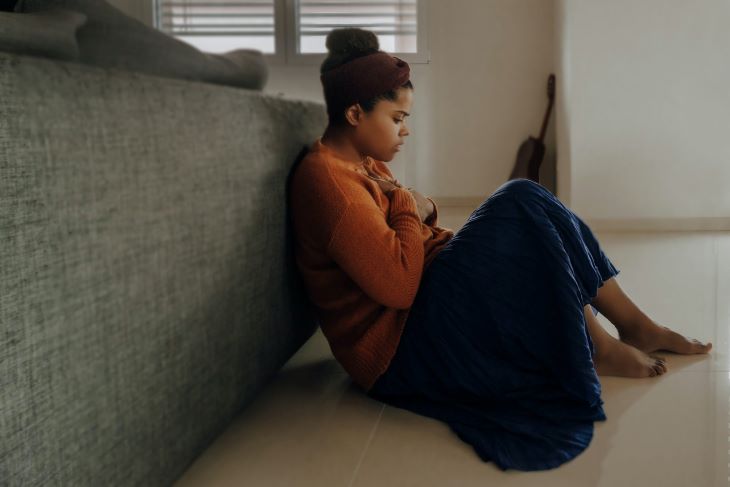How to Help a Grieving Friend
If you have ever lost a close friend or family member, then you will know just how difficult it can be. It is also difficult to know how to react and respond when a close friend loses someone close to them.
The Cambridge Dictionary defines grief as “very great sadness, especially at the death of someone”.
However, there is a lot more to grief than just sadness.
When an individual experiences grief, they can feel a whole range of emotions.
Individuals are likely to experience a range of symptoms including denial, anger, anxiety, confusion or even depression.
It is important to remember that everyone grieves differently, and there is no right or wrong way to grieve the loss of a loved one, no matter how close to them you were.
Knowing what your friend needs or wants from you isn’t always easy, which is why our team at Rehab Recovery have created a list of helpful do’s and don’ts so that you know what to say and how to act when a close friend or loved ones loses someone close to them.
What are the symptoms of grief?

Firstly, it is important to understand exactly what grief is, what grief looks like and how grief works.
According to the mental health charity Mind, grief is described as the stressful and difficult experience that everyone goes through when they lose someone close to them throughout their life.
Everyone will experience grief at some point during their life, and despite this a lot of people don’t know how to deal and cope with their grief.
The majority of people are currently also unaware that grief has different stages, and that grief can last anywhere between a number of days, weeks, months or even years.
There are also a number of symptoms to look out for when someone is grieving, which can change depending on which stage of grief you are currently experiencing.
It is important to remember that grief is a very individual and personal process, which means that different people will react to grief in different ways, and no way is right or wrong.
There are many symptoms when it comes to grief, some of which are explained below.
Sadness or depression
Sadness or depression are probably two of the most common symptoms associated with grief. Many people experience sadness and depression in the following days and weeks following a death, once you realise that your loved one has passed away.
During this time you might be tempted to isolate yourself and retreat into your own personal space. It is important to talk to someone if you think that your sadness is turning into depression.

Refusing to believe that your loved one has passed away
Lots of people also experience shock, denial and disbelief when they lose someone, especially if the death was unexpected.
In order to protect ourselves, we might stay in a state of shock or disbelief for a while after an individual has passed away. Your mind does that in an attempt to protect yourself against feelings of sadness and depression.
This is particularly true during the first few days after someone passes away.
Feeling nothing, or feeling numb
Lots of people who experience grief also experience a sense of numbness at the start of the grieving process.
Again, this numbness is your mind’s attempt to protect yourself from extreme emotions during the early stages of your grieving process.
Whilst many people might see the numbness stage of grief as a negative thing, it is actually a very necessary stage of the grieving process and can be helpful.
However, it is important not to dwell on feelings of numbness for too long, so that you do not feel numb to all other emotions. This can result in you feeling depressed and lonely for a prolonged period of time.
Feeling confused
When you lose someone, especially unexpectedly, it is common to feel confused and disorientated for a while. This is because if someone close to you passes away, this impacts lots of different aspects of your life.
Suddenly, you have a funeral to arrange and a lot of things would have changed in a short space of time.
It is also difficult to make sense of someone passing away, whether they have been ill for a while or not.
Feeling overwhelmed
Feeling overwhelmed whilst grieving is also very popular. You might feel overwhelmed so much that you break down into tears, which is also very common.
The emotions associated with grief are very strong and overwhelming, and people might struggle to see a life without their loved ones.
The charity Mind wants to make it clear that not everyone experiences all of the above symptoms when grieving the loss of a loved one. Some people might also only experience some of these symptoms months, or even sometimes years after they lose a loved one.
When it comes to grief, there is no right or wrong way to grieve.
What are the stages of grief?

According to a number of studies and a book written by Elisabeth Kübler-Ross in 1969, there are a number of different stages of grief.
According to Kübler-Ross, the stages of grief are defined as the below 5 stages.
However, it is important to remember that everyone is different, and everyone deals with grief differently.
Grief takes different people different periods of time to overcome.
Stage 1 – Denial
The first stage of grief is denial. Lots of people struggle to accept what has happened when someone close to them passes away.
Stage 2 – Anger
Anger is the second stage of grief, and it is very common to feel angry when someone you love passes away.
Stage 3 – Bargaining
When you lose someone you love, it is sometimes hard to accept that the person you know and love is no longer with you. It is also hard to accept that it has actually happened.
Bargaining is when you try to make a deal with yourself or with your God, where you promise yourself that in the future you will be better, more appreciative or more loving.
Stage 4 – Depression
Depression is the second to last stage of the grieving process and is when you feel extreme sadness. This can feel very intense and could last a number of weeks, months or even sometimes years.
Stage 5 – Acceptance
Acceptance is the last stage of grief and is when you start to accept that your loved one has died. This isn’t you forgetting about your loved one, but it’s about accepting that they are no longer with you whilst still remembering and cherishing them in your memories.
Mind also highlights that the above stages of grief also have the ability to appear in any order. For example, someone might find themselves accepting the loss, and then might go on to experience anger, denial or depression months or years after losing their loved one.
Some people might also not experience the above grief cycle at all, and might only find themselves experiencing one or two emotions after someone they love passes away.
How To Help Someone Who Is Grieving

If you know someone who is currently grieving, then there are a number of things that you can do to help them through the different stages of the grieving process.
However, in the moment it is hard to know what to do or what to say to help, and it can sometimes be easier and tempting to keep your distance, in fear of saying the wrong thing.
Nevertheless, this is the time when your loved ones need your help and support the most, which is why you should try hard to be there for them.
Check on them on a frequent basis
One of the best and most useful things that you should do is check that your friend or loved one is okay. You could drop them a text, give them a ring or simply knock on their door with a card.
Learn to listen
When speaking to someone who is currently grieving you should try your best to listen more than you talk to them. You should allow them to express how they are feeling without being made to feel like they are a nuisance or overly dramatic.
If your friend or loved one isn’t opening up about their loss, then you could try to ask some probing questions about how they are feeling.
Offer some form of practical help
When someone is grieving from a loss, things like cooking, cleaning, ironing, washing, doing a food shop or even working goes out of the window.
This is why it can be incredibly important to offer someone practical help when they are struggling through the grieving process.
You could do this by cooking them a meal and bringing it round to their house, so that they have something to eat.
You could go round to their house and help with the cleaning or ironing, or offer to take the dog for a walk. You could also offer to help with childcare or the school pickup if your friend has children.
This will not only help them in the moment, but it will also aid them in their grieving process as it will free up some much-needed psychological space to help them process what has happened.
Look out for signs and symptoms of depression
When someone is grieving from a loss, it is very easy for them to fall into depression. This is why you should look out for any signs of depression, which could include the following symptoms:
- Feeling continuously sad
- Feeling irritated, angry or annoyed on a frequent basis
- Crying on a frequent basis, even if you do not know why you are crying
- Struggling to make a decision about even the smallest of things
- Continuously feeling worried or anxious about big and small things
- Complaining on a regular basis
- Feeling hopeless and scared
- Feeling guilty
- A lack of motivation to get work done, to go places or to see people
- Having thoughts of suicide or self-harm
If you think that your friend or loved one is struggling with grief-induced depression, then make sure that they get the help they need from a professional.
If your loved one is displaying signs of depression, and if they have spoken about suicide then you should not write this off as a temporary thing. This should be taken very seriously and you should try to get them help immediately.

Don’t forget important dates
You should always try your best to remember important dates associated with the loved one who has passed away.
For example, you should try your best to remember their birthday or wedding anniversaries.
You should always make sure that you speak to your friend and check in with them around these important dates so that they know that they are not alone and have someone to talk to if they are feeling particularly low.
If you are prone to forgetting, then why not make a note of this in your diary, your calendar or set a reminder on your phone.
Be patient with them
It is also important to remember that everyone experiences grief differently. It might take some people a week or two to overcome their grief, and it might take other people months or even sometimes years.
If you want to support your loved one or friend, then you will need to remain patient with them.
Even if you tend to overcome grief relatively quickly, it does not mean that your friend or loved one will.
Try not to lose your patience with them or snap at them, make sure that you are always there to listen to them.
Know that you cannot get it right every time
Finally, it is important to accept that you simply cannot get it right every time. We wouldn’t be human if we didn’t make mistakes.
Lots of people avoid trying to help someone deal with grief because they are afraid of saying or doing the wrong thing.
However, doing or saying nothing is not the way forward and will not help your loved one, their grieving process or your relationship with them in the long run.
What not to do when someone is grieving

It is sometimes hard to know what to say when someone is grieving.
That is why our team at Rehab Recovery has created a list of things that you should avoid saying or doing when someone is grieving a loss of a loved one.
Don’t shy away from talking about the individual who has passed away
One of the worst things that you can do when someone is grieving is avoid talking about the individual who has passed away.
This way, the individual will feel more lonely than ever and won’t be able to process their grief.
Humans need social interaction in order to process their thoughts and emotions, and it is no different when it comes to processing grief.
This is why you should make an effort to talk about the person who has passed away, and should even try to share memories of them.
Don’t compare the way that you deal with grief against the way that they deal with grief
When someone is going through a tough time, it is easy to draw on your own experiences. It is important to remember that everyone deals with grief and emotions very differently, so your experience of grief or trauma might be very different to how someone else deals with it.
This is why you shouldn’t compare yourself to them, and you certainly shouldn’t push your expectations on them.
You need to remain open-minded, supportive and non-judgemental.
Do not be religious if they are not religious
It can sometimes be hard to avoid pushing your ideas and beliefs onto someone else, especially during a tough time.
This is especially true if you are religious and supporting someone who is dealing with grief.
It can be difficult not to talk about religion when someone has passed away. However, this is not recommended if the person you are talking to does not believe in God and is not religious in any way.
How to comfort a child who is grieving

If your child is currently grieving, then it is hard to know how to respond. This is because children respond to grief very differently to how adults deal with guilt.
As with adults, children also respond to grief in their own way, and there is no right or wrong way for a young person to grieve, as long as they do it in their own time.
Whilst most children will be aware of death and will understand what grief is, the chances are that they will not have had much experience of grief yet. As a result of this, they might not know how to respond.
As a parent or guardian, you will always want to do your very best to protect your children from any harm, be it physical or emotional.
However, the truth is that your children will have to experience grief at some point during their life, whether you like it or not. So, the best thing that you can do is be aware of how children tend to deal with grief and how you can best prepare your child for their first experience with grief.
Acknowledge their emotions
When a child experiences grief, they will be experiencing a whole new set of emotions, probably for the first time in their lives.
They might start off by feeling sad and will often show this emotion through crying. It is incredibly important to nurture your child’s emotions during this time, and you should encourage them to cry if they feel like they want to.
Encourage them to ask questions
You should also encourage your child to talk about their thoughts, feelings and emotions
You should also encourage them to ask any questions that they might have.
They could have questions about death and what happens to people after they pass away.

Be honest and yet sensitive about the facts
It is also important to remain honest with your child at this stage. However, you must also remain sensitive with your child, ensuring that you are not upsetting them any further with any sad facts on the reality of life and death.
Try to remain sensitive and acknowledge their emotions as much as you can.
Specialists are also suggesting that parents and guardians should avoid using euphemisms when talking about death.
For example, studies have now shown that parents should never use sayings such as ‘they have gone to sleep.’
This is because these sayings are now believed to confuse children, and even potentially make them feel more anxious and scared.
Share memories about the deceased
If your child is currently grieving then you shouldn’t shy away from talking about the deceased person.
In fact, you should try to share as many positive memories as possible, so that they remember their loved one in the best possible light.
You should aim to keep the individual’s memories alive for as long as possible, and you can do this by sharing stories, memories and photographs of the deceased.
Tell the school what is going on
You should also tell your child’s school that your child has lost a loved one. This will ensure that the teachers are made aware of the situation, and will be able to offer your child any leeway or support should they need it.
If your child has lost someone extremely close to them, like a parent or sibling, then it might be appropriate for the school to inform some classmates or parents of other children so that everyone is aware of the current situation.
Think before you allow them to attend the funeral
If your child has recently lost a loved one, then you should think long and hard before allowing them to attend the individual’s funeral. Obviously, this will come down to a case-by-case basis.
You will have to make your decision based on your child’s age, their ability to attend a funeral, their levels of maturity and whether or not they want to attend the individual’s funeral in the first place.
This is because funerals can be quite an intense experience, especially if your deceased loved one has opted for a religious funeral or a cremation.
Different types of grief

It is also worth mentioning that there are lots of different types of grief. Whilst most people associate grief with death, people can also experience grief when it comes to other things.
This could include things like grief having lost a job, having broken up with a partner, losing a friend, moving house or moving country.
If you suffer from poor health, then you might also find yourself grieving your previously healthy life.
It is important to remember that individuals are allowed to feel grief for all of these different situations, and you should not undermine their grief just because they might not have necessarily lost someone close to them.
Support for grieving loved ones

If your loved one, friend or child is currently grieving a loss of a loved one and you are struggling to offer them help and support, then there are a number of helplines available throughout the UK.
These helplines will be able to offer your grieving loved one help and support, whilst being an additional ear to listen to. Some of these helplines are listed below.
- Child Bereavement UK – 0800 028 8840
- Cruse Bereavement Care – 0808 808 1677
- Grief Encounter – 0808 802 0111
- Hope Again – 0808 808 1677
- Winston’s Wish – 0808 802 0021
If you think that your loved one or friend is struggling to deal with their grief, then make sure that they speak to one of the above helplines.
If you think that your loved one or friend is struggling from grief induced depression, then it is important that they seek the right kind of professional help.
If you think that your friend needs help with a grief-induced mental health issue, then try to encourage them to speak to their local GP or to a member of the team at Rehab Recovery by calling us on 0800 088 66 86.
Our team at Rehab Recovery might suggest that you talk to someone for some bereavement counselling which has proven very popular and successful when it comes to helping people overcome their grief.





